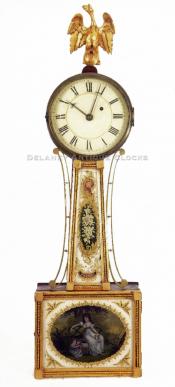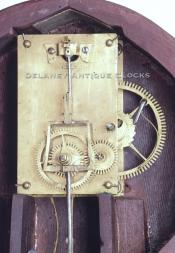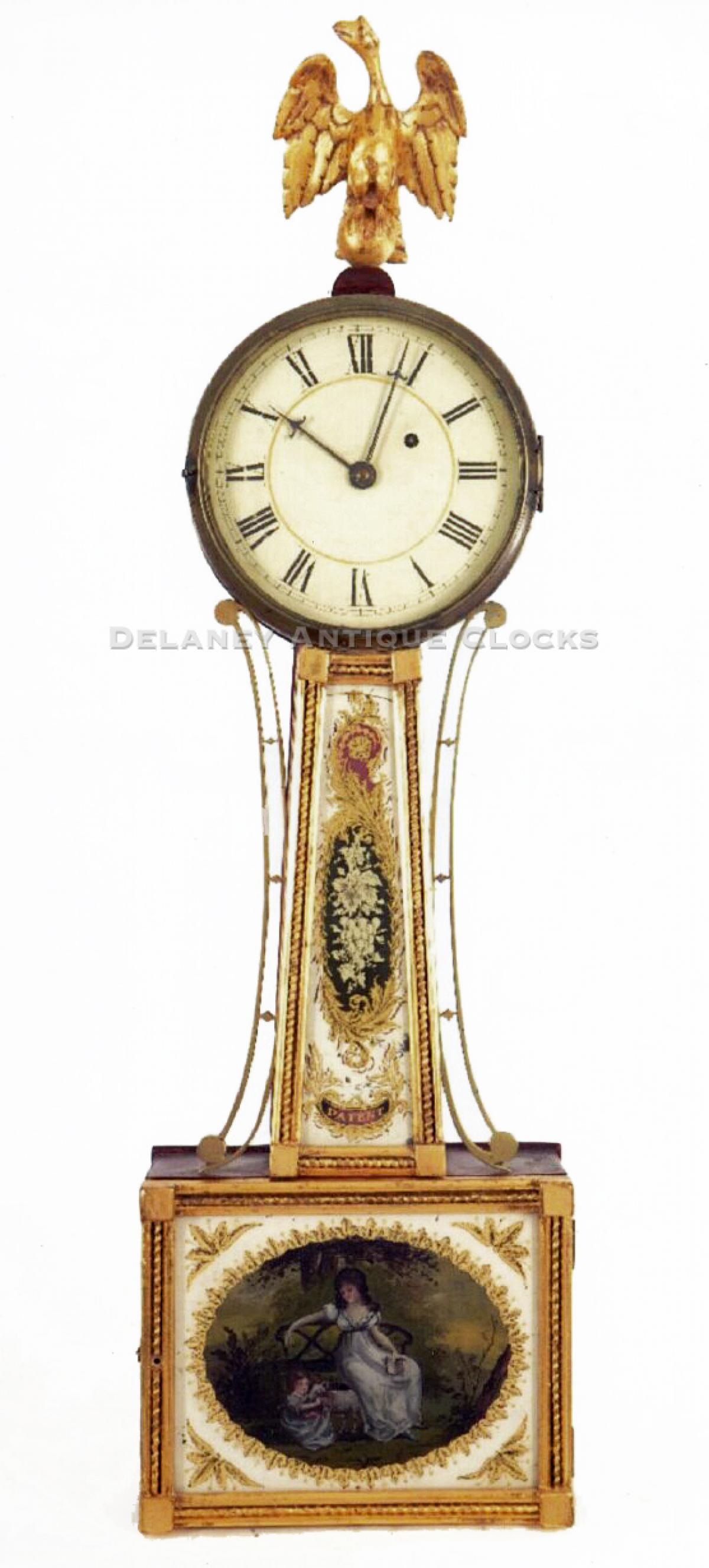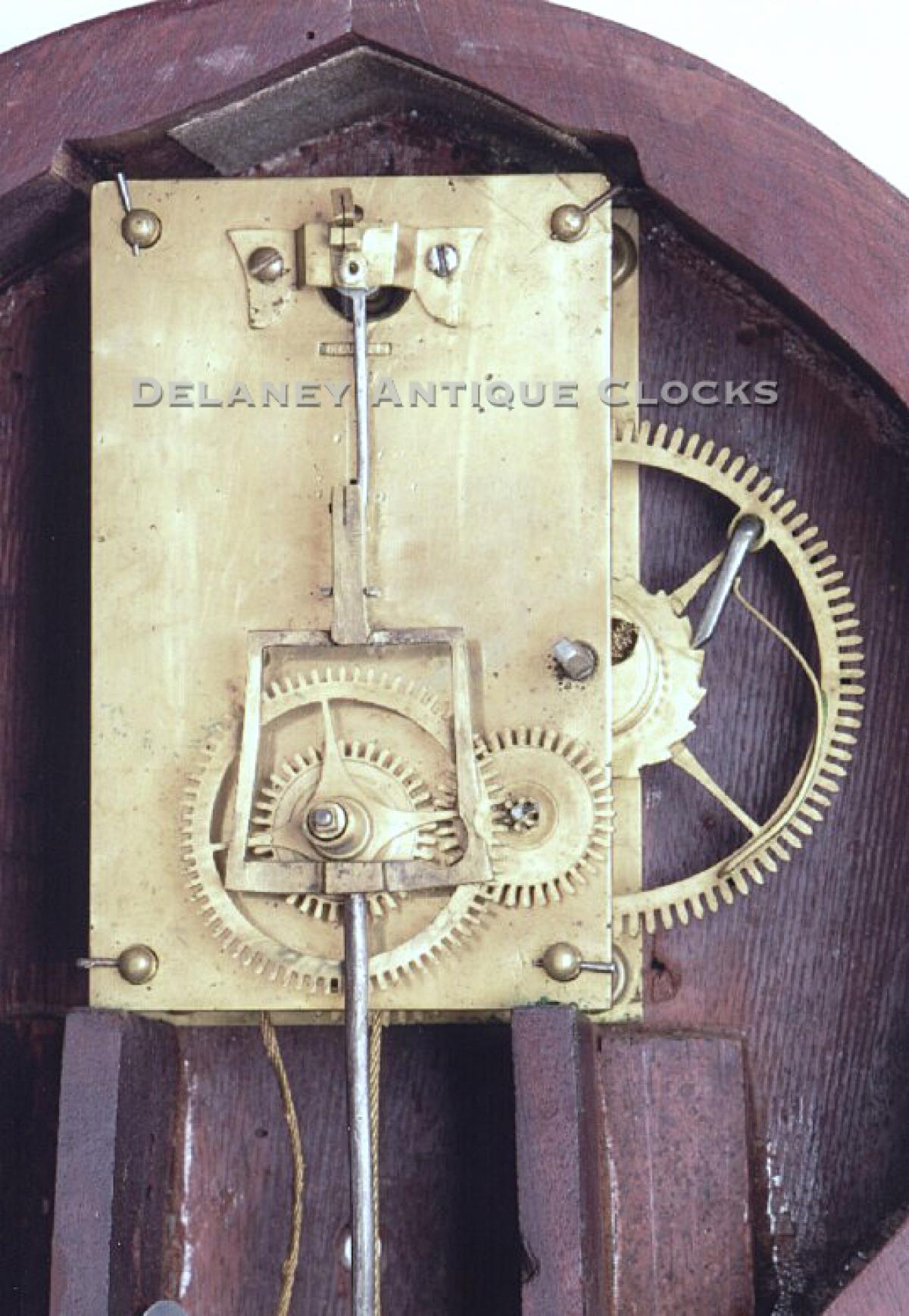Lemuel Curtis Timepiece Concord, Massachusetts. A banjo clock. XX-5.
This is a fine Federal Massachusetts timepiece or "Banjo clock" made in Concord, Massachusetts, circa 1820 by Lemuel Curtis.
This is a wonderful example. The case is constructed in mahogany and features rope-turned frames that retain their original gilding. These frames are fitted with reverse-painted tablets. The tablets are original to this clock and are done in very good colors. The lower tablet depicts a woman dressed in white sitting on a bench in the countryside with a little girl seated below her. The throat tablet is also colorfully painted-decorated. It is signed "Patent" in the traditional location. The bezel is fitted with glass, and the side arms are brass. The bezel opens to a painted dial that is not signed. The dial is painted on iron and features Arabic numerals and a gold ring. It is signed "L. Curtis." Behind this dial is a brass movement that is weight driven and is designed to run for approximately eight days on a full wind. The plates are rectangular, and the front plate is dies stamped with the Maker's name. The movement is set in a Concord-style case having a very distinctive cutout in the head. It is mounted to the back of the case with a single screw. The bridge is a butterfly form, and the teeth in the gear train are deeply cut. The pendulum features a Concord-style keystone and a brass-faced bob. The tie-down is also the form of what one would expect to find in a clock made in Concord.
This clock measures approximately 33.25 inches long overall.
Inventory number XX-5.
Lemuel Curtis was born in Roxbury, Massachusetts, on July 3, 1790. He was the son of Samuel and Sarah (Partridge) Curtis, whose sister married Aaron Willard, making him his nephew. It is thought that Lemuel probably trained with Simon Willard in Roxbury. Lemuel had two brothers who were also involved with clockmaking. In 1811, he moved to Concord, MA, and took a shop near the Court House. At that time, Lemuel advertised that he was working on his own. On July 12, 1816, he was granted a patent for the girandole wall clock. This decorative form is considered by many to be America's most beautiful contribution to the market. Lemuel had two brothers who were also involved with clockmaking. His brother Benjamin Curtis may have painted a number of the glasses in his signed clocks. In 1820, he formed a partnership with Joseph N. Dunning. This partnership moved to Burlington, Vermont, in 1821. Their shop in Burlington was located at the corner of Church and College Streets in the Thomas Hotel. They worked there in collaboration until 1832. While in Burlington, they worked as clockmakers, silversmiths, and jewelers. Lemuel died in New York on June 17, 1857. Lemuel is known to have made girandoles, timepieces, lyre clocks, and shelf clocks.












